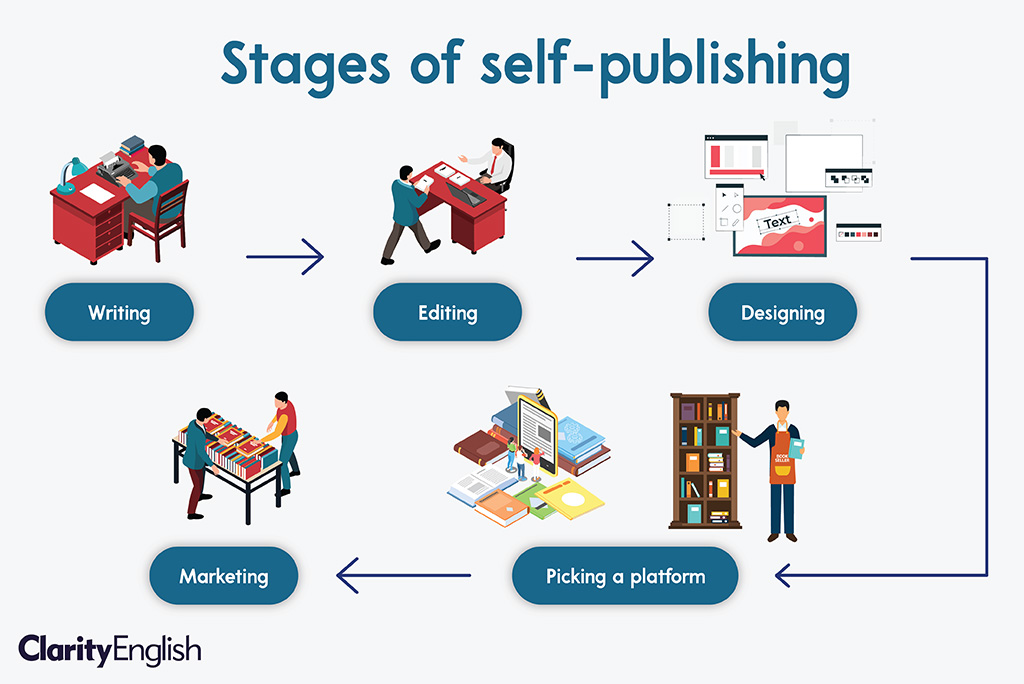Felicity O’Dell has over thirty years’ experience as a teacher, writer and teacher trainer. Her books have been published by CUP, Longman, OUP and DeAgostini. She is a co-author of the self-published book ‘100+ Tips and Tricks for Success in Language Learning’. Felicity is one of three contributing authors in this mini-series. Read the other posts here.
Self-publishing used to have the reputation of being purely vanity publishing, something for the writer whose work was not good enough for publishers to accept. But things have changed. EFL publishing houses nowadays tend to be focused on big-selling courses. They are much less interested in handling a one-off idea than they might once have been. Royalty rates have declined and have often even been replaced by fees, making writing for a publisher much less financially appealing, but also resulting in the writer feeling less fully engaged with the project.
All this is accompanied by the fact that modern technology makes self-publishing relatively straightforward, accessible to anyone with reasonable computer skills. So when Patricia Pullin, my co-author, and I agreed we wanted to write our book of advice for language learners, we decided we would aim to self-publish it. After all, several of our friends had recently produced attractive publications that way, so why not have a go ourselves?
The process
Writing the book was the easy part. We got together several times in each other’s homes in Switzerland and Cambridge and spent solid blocks of time working. We did individual sections during each day and then shared and commented on each other’s work in the evenings. I’ve never written in such a concentrated way with a co-author before and I would thoroughly recommend it. It almost felt like a holiday, particularly for me when the views on looking up from my laptop were of the Alps rather than the Cambridge suburbs.
Once we had our manuscript we then had to work on getting it ready for publication. We knew from our own and others’ experience that it was essential to get a good editor and invited Alison Silver, a highly experienced professional to take on this role. She worked through the manuscript, picking up on misspellings, inconsistencies and ambiguities, as well as suggesting how to present our content most effectively. Through her we then found a designer, Bob Swan at Blue Dog Design Studio. He dealt with the complications of producing a manuscript that would not only look professional but would also fit with the constraints of publishing through Amazon.
We decided to use Amazon’s print on demand option. The main selling point was that it was easy to use and allowed access to enormous potential markets. It also helped that this was the approach recommended both by friends who had self-published and by most of the online comments we found. Amazon is not perfect. Its accounting systems are complex and it’s hard to pick out the key instructions you need from the masses of information available. The process felt daunting and we kept postponing the moment of clicking to upload our manuscript by reading yet another article about how to do it. However, once we set to it, it was remarkably quick.
It was exciting to instantly see the book on Amazon’s website and immediately order a copy which arrived within a couple of days. Having got a print version, we felt it was important in the modern world to also make it available electronically. Again we soon realised we needed professional help with this more complex process. Oxford e-books came to our rescue here quickly converting our files into a format that would work across various types of device.
The bottom line
So would we recommend self-publishing? Ultimately it was an easier process than we had imagined though we did of course benefit from a great deal of professional help – which does not come cheap. In the end, we must have spent around £5,000 each on hiring good people to edit, design, illustrate and produce a digital version, not to mention various smaller fees like buying ISBNs and paying Amazon.
We have learnt to appreciate that one major advantage of working with a publisher is their marketing expertise. Neither of us feels comfortable with self-promotion or has the time or skills to publicise our baby. We would now be thrilled if we broke even let alone made any profit from the venture.
But we have ended up with a publication that we feel proud of. Because we were in charge of the whole process, we’ve enjoyed possibly a greater sense of achievement than we’d have had from a book produced by a publishing house in the traditional way. It was an experience that we learnt a lot from. We’re glad we did it but we’d need to save up before considering any further self-publishing adventure.

